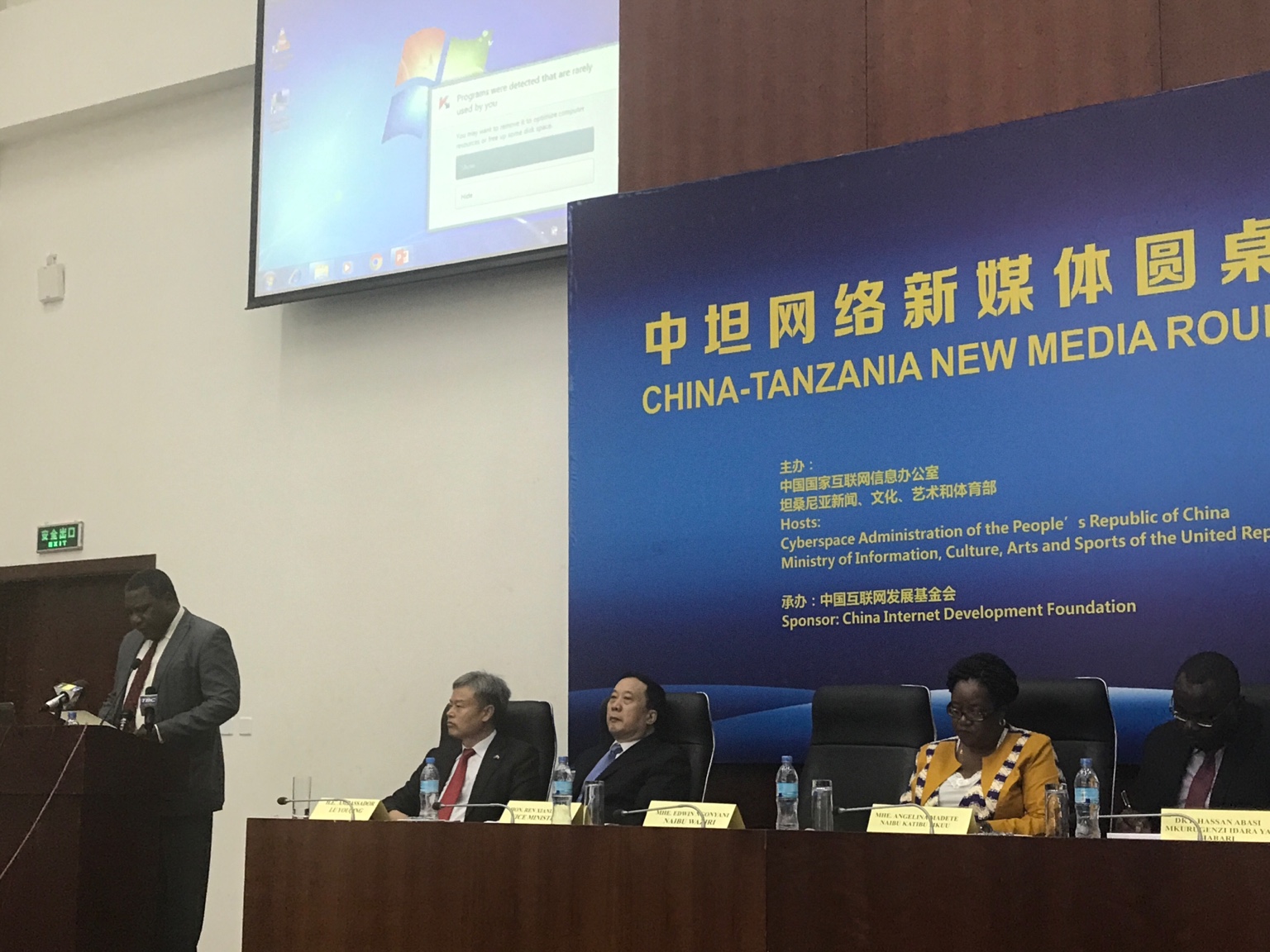Informer
JF-Expert Member
- Jul 29, 2006
- 1,582
- 6,627

The deputy minister for Works, Transport and Communication, Engineer Edwin Ngonyani, disclosed this in Dar es Salaam last week in a keynote address to launch the China-Tanzania cyber media round table meeting – which brought together various media stakeholders, government officials from Tanzania and their counterparts from China led by the Deputy Minister for Cyberspace Administration, Mr Ren Xianliang and the Chinese Ambassador to Tanzania, Mr Lu Youqing.
The law to be known as the Personal Data Protection Act will be ready in a year’s time from now and it could add onto the two cyber-crime laws dubbed Cybercrimes Act 2015 and Electronic Transactions Act 2015.
“In consideration of regional and international cyber legal requirements, Tanzania has enacted the Cybercrimes Act, 2015 and Electronic Transactions Act, 2015 … and we are in the process of enacting the Personal Data Protection Act to make our cyberspace more secure … in protecting users,” he noted.
Eng. Ngonyani noted that the proposed law would for the first time allow the law enforcers intrude the suspected communications and allow the use of social media communication including pictures, messages as evidence in the court.
“This Act (Personal Data Protection Act) is expected to be ready in one year time from now and it will ensure safety to internet and mobile phone users..,” he clarified.
The deputy minister also disclosed that the law was being formulated in accordance to International Communication Union (ITU) agreement, adding that all countries in the world are supposed to have a similar law.
The new law would bring full cycle to the government’s move to completely replace the Proceeds of Crime Act of 1991 which has for a longtime been referred to by some activists and lawyers as a bad law.
Eng. Ngonyani pointed out that currently, cyberspace faces major security threats including frightening ranges of negative forces pitched against them, and with many harmful motives such as fraud, personal identity theft, intellectual property theft, industrial espionage, service disruption, physical damage and blackmail, among others.
“As we know the issue of cyber security knows no boundaries … so it’s the responsibility of all of us to work together towards enhancement of our systems and protecting information so as to ensure adequacy and security around cyber infrastructure and content, which includes individual users that use the cyberspace,” he stated.
The deputy minister added that the government is now in the process of developing the National Cyber Security Strategy to strengthening the Computer Emergency Response Team (CERT) Regulations of 2011.
The Chinese Deputy Minister for Cyberspace Administration, Mr Ren Xianliang, said that his government had largely succeeded in controlling cyber crime by introducing user friendly applications for local people to use. He noted that his government was now in full control of new media communications despite minor challenges that they are striving to fix.
Mr Ren said that China had also been working in improving the environment for internet and new media operators by setting agenda, introducing user friendly apps and ensure that they don’t misuse their freedom of communicating.
“Security of online communication is a challenge given the new media’s greater power of information dissemination but governments have a role of regulating the online opinion,” he said.
Mr Ren also noted that his government had ensured that new media users in China were playing a role in creating peace and harmony by spearheading the role of revitalizing China which is the main focus of their government.
“Government has the role of encouraging positive discussions among the users of new media and respond to the concerns of people to win their hearts,” he said.
Mr Ren noted that the Chinese government was committed to further improve the bilateral ties to emulate the dreams of the Tanzania’s Founder, the Late Mwalimu Julius Nyerere and his Chinese counterpart, Mao Ze Dong.
The Chinese government had completely blocked all US internet applications such as Google, YouTube and Facebook from being accessed by its people and has alternatively introduced more relevant and user friendly ‘apps’ among Chinese people which include, WeChat, Youku and Tencent QQ, among others.